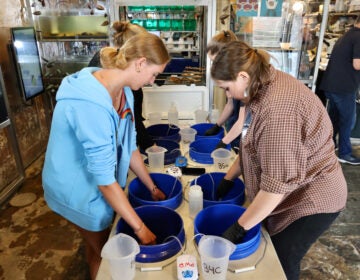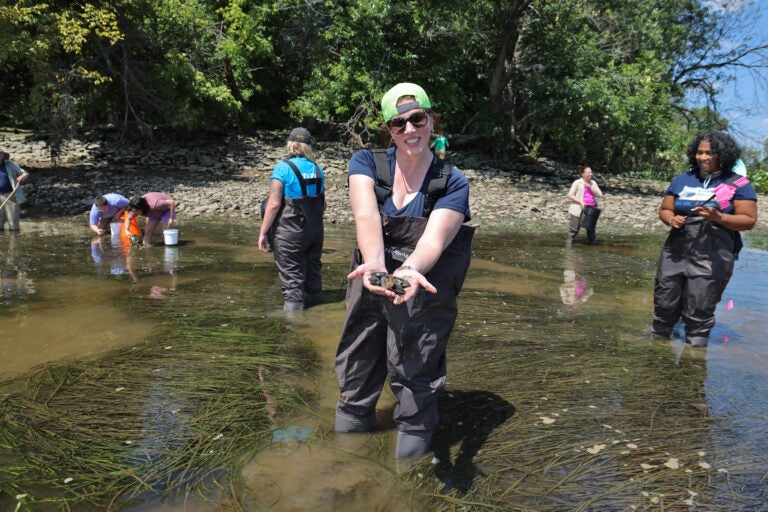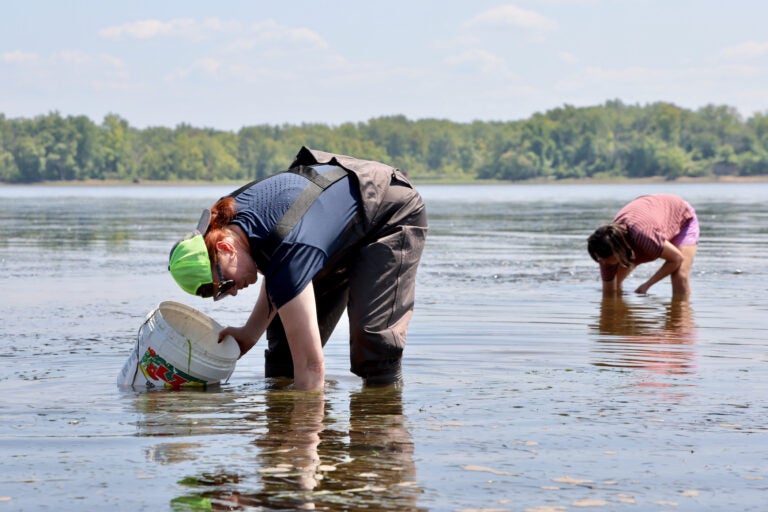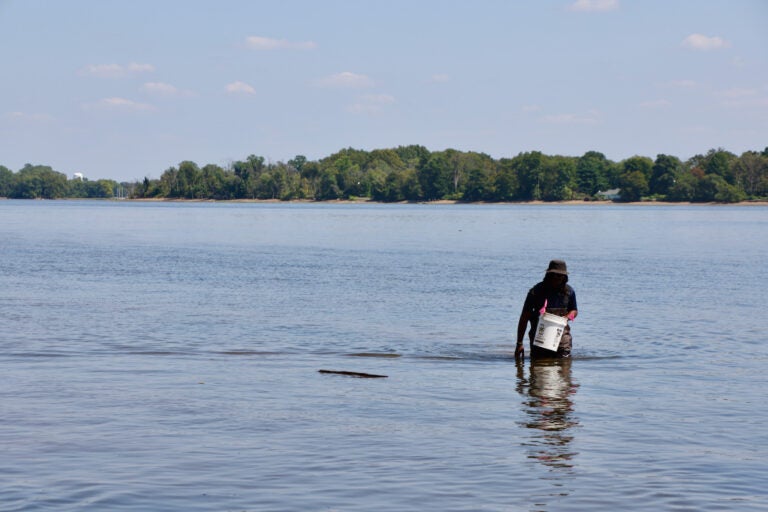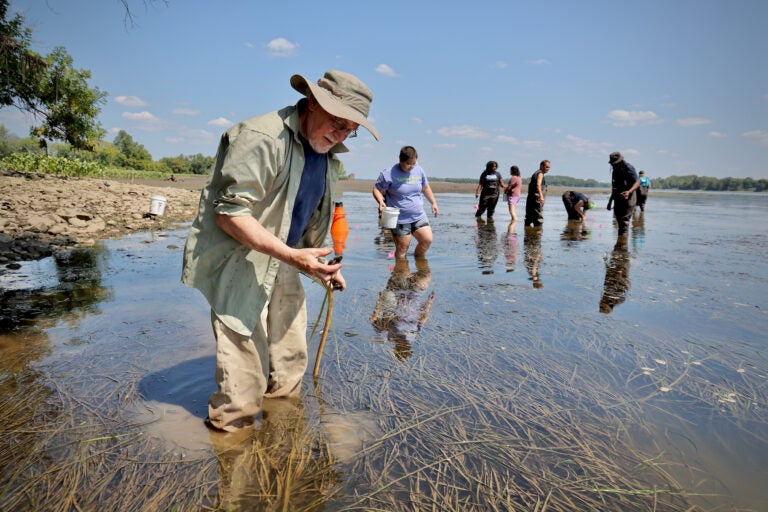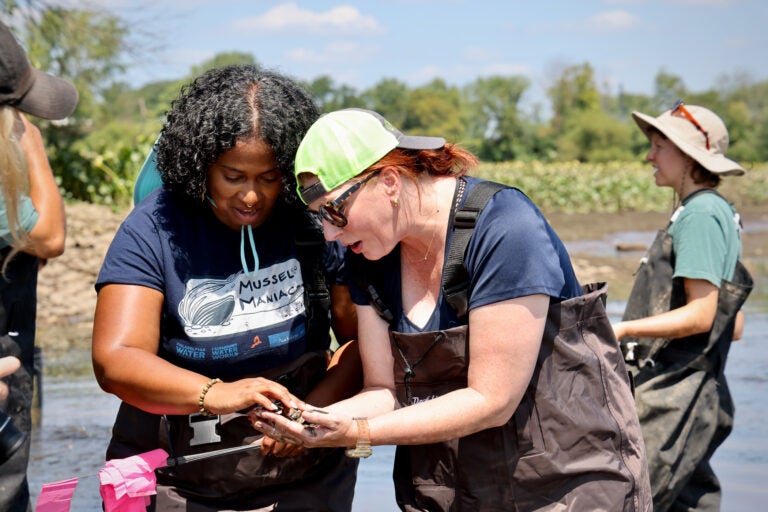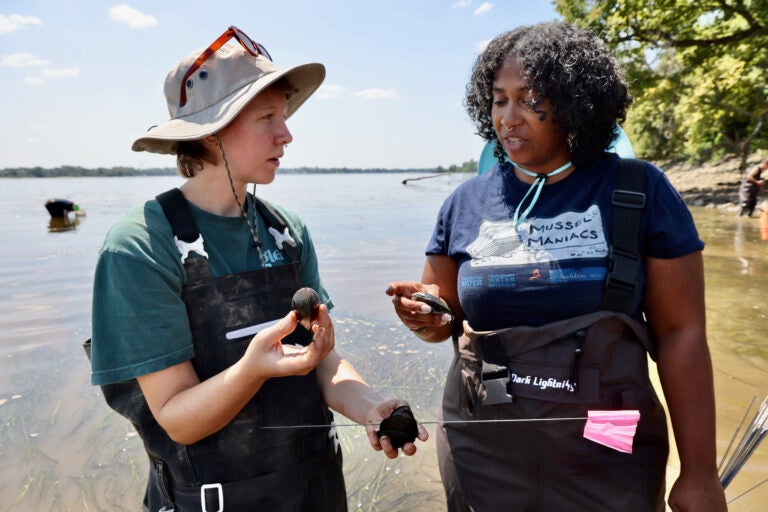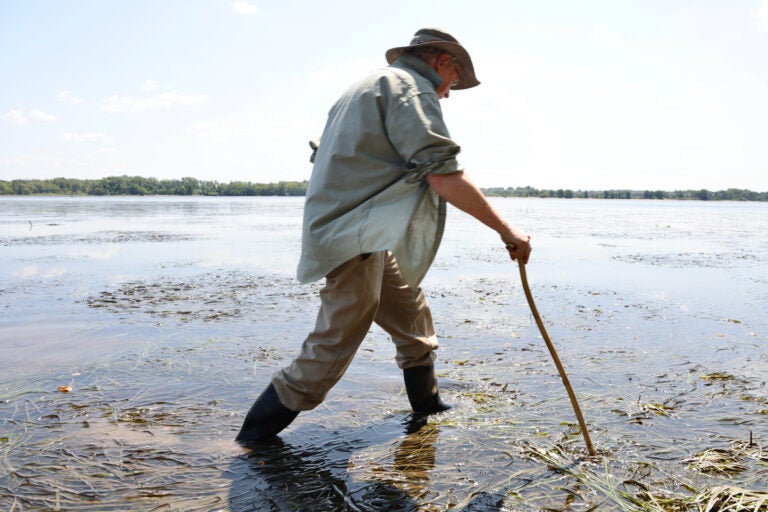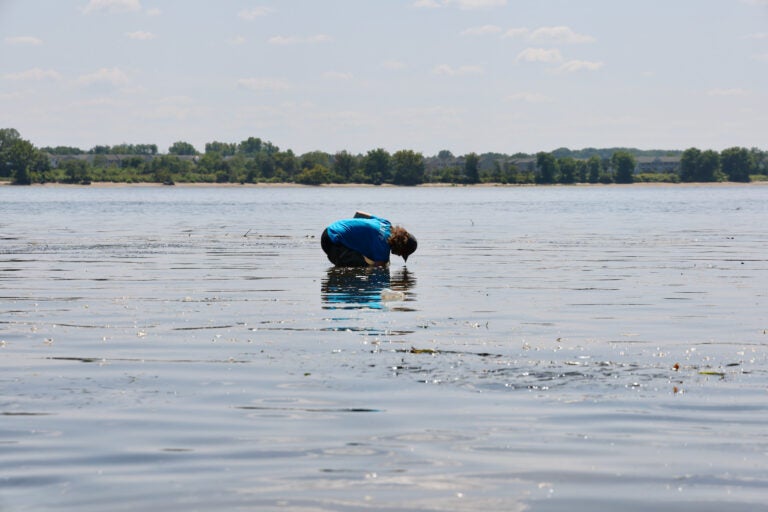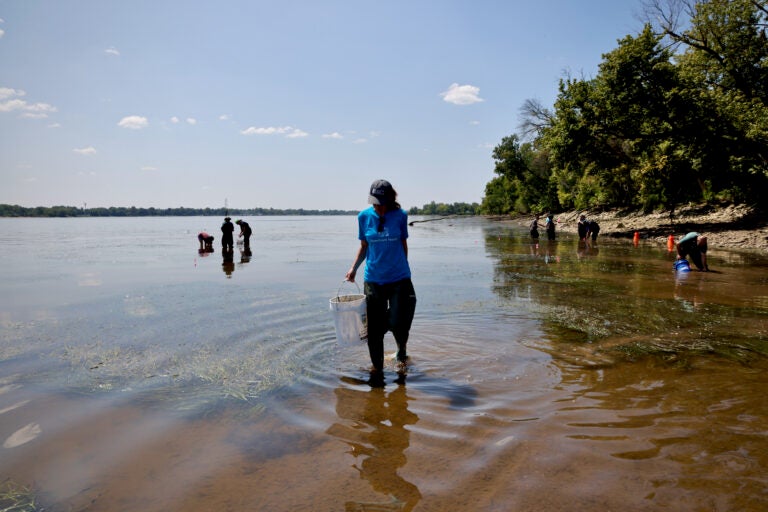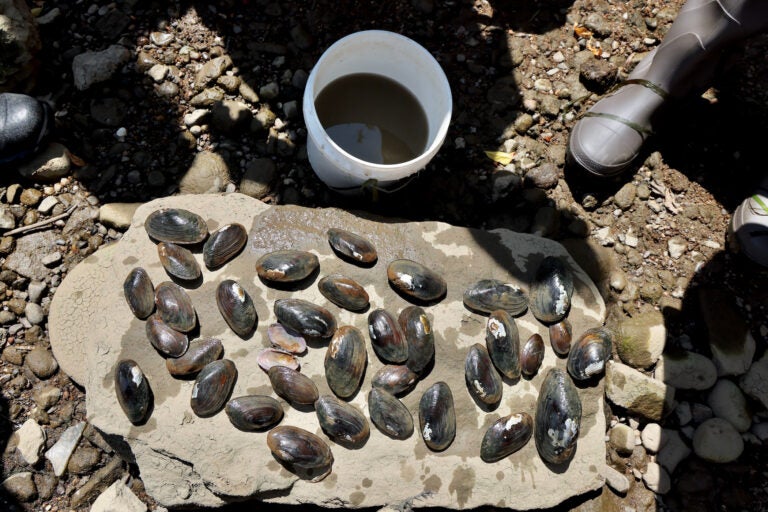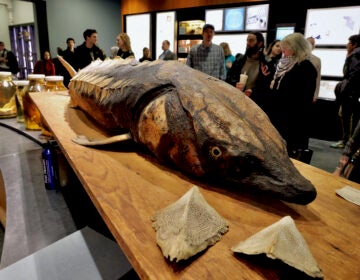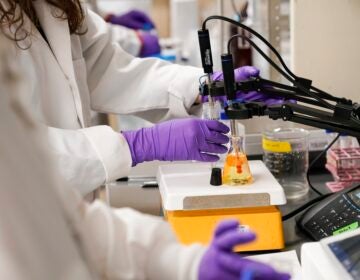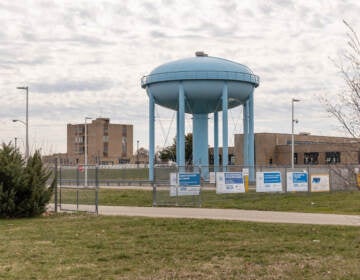Conservationists find mussel life near Pennypack on the Delaware
Finding mussel life in the Delaware River is a sign of good water quality, conservationists say.
From Philly and the Pa. suburbs to South Jersey and Delaware, what would you like WHYY News to cover? Let us know!
Amberly Choi walked through knee-high water last week, feeling her way through slimy mud to search for rock-like mussel shells in the Delaware River.
The community mussel survey event Friday was the first of its kind for a stretch of water near Northeast Philadelphia’s Pennypack on the Delaware.
After carrying a few buckets to land, Choi began counting the mussels — tallying 121 in total.
“It was really exciting. I felt like a scientist doing field work,” Choi said. “It was like Pokémon — you get to find these different species of mussel.”
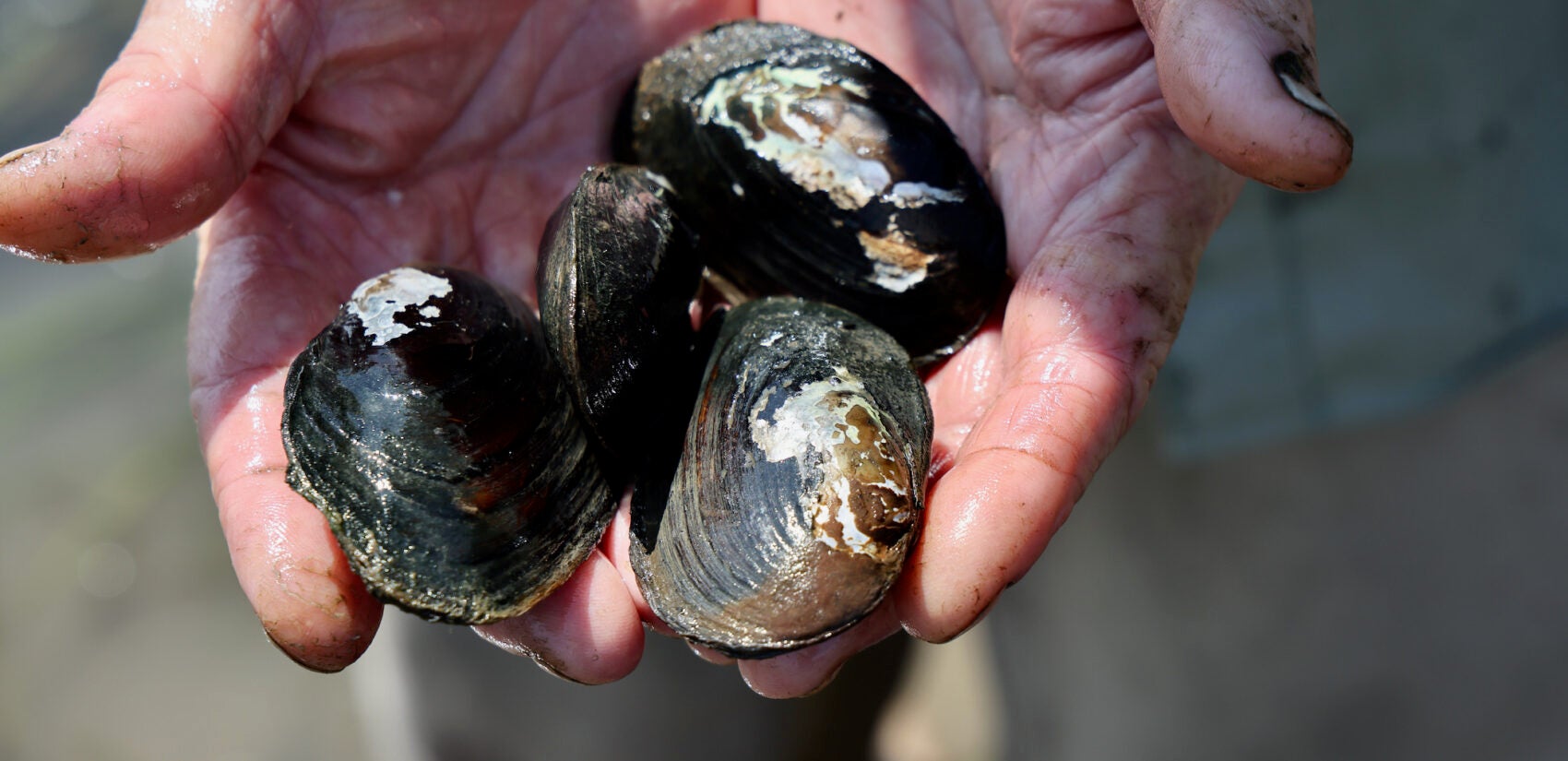
Known as nature’s water filters, freshwater mussels can treat up to 300 gallons of water each month.
However, populations have been impacted by poor water quality and human-made dams that prevent the movement of fish species that mussels rely on to survive.
But conservationists say the results of the survey near Pennypack on the Delaware — hosted by Riverfront North, the Discovery Center, the Pennypack Environmental Center, the Aquatic Research and Restoration Center and Audubon Mid-Atlantic — is a sign of promise.
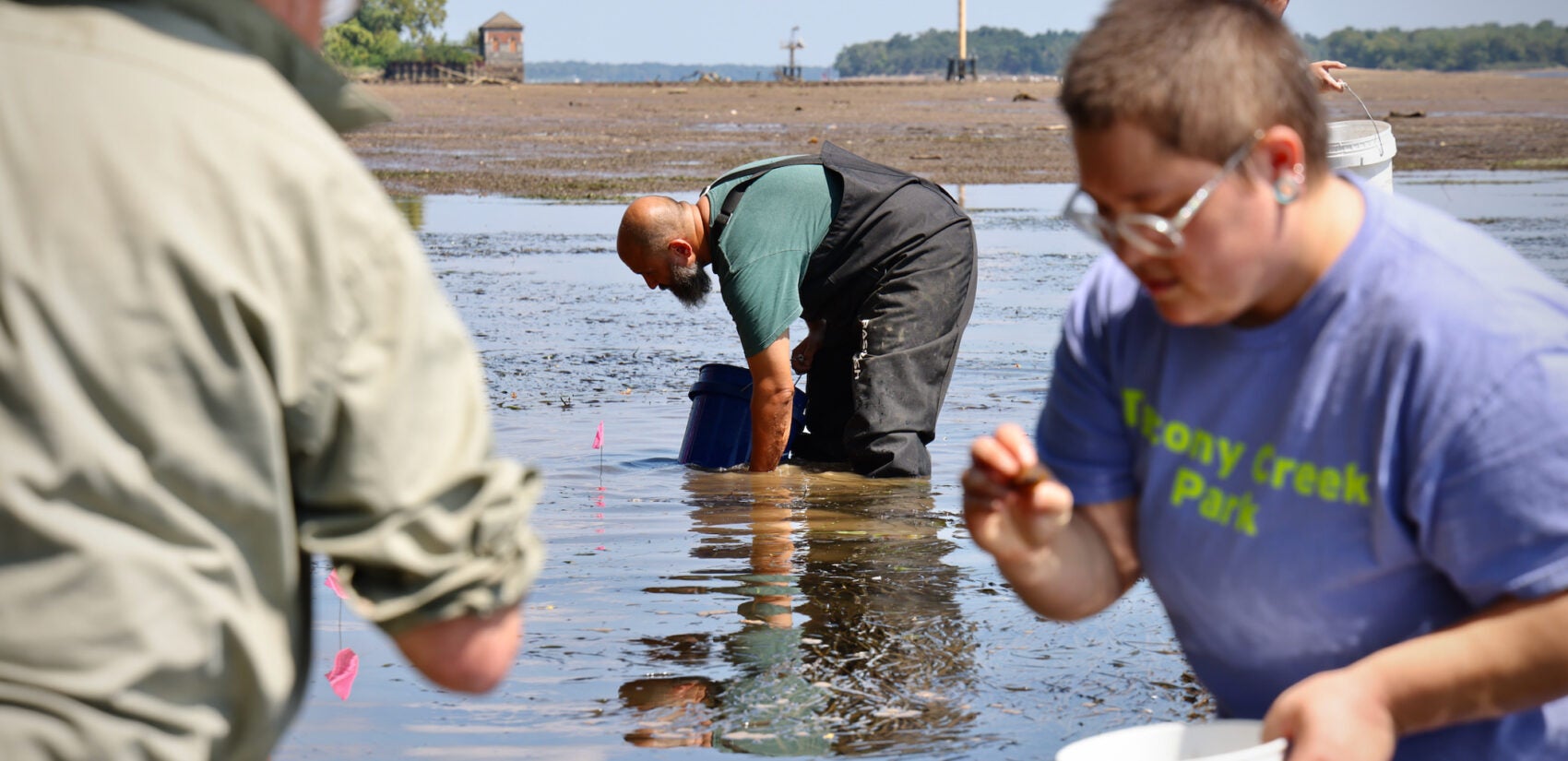
Finding so many mussels means water quality in Philadelphia has improved since the implementation of the Clean Water Act more than 50 years ago, said Nathan McWilliams, a stewardship manager for Riverfront North.
Prior to the monumental law, the Delaware River between Trenton and Philadelphia was described as a “stinky, ugly mess,” and supported virtually no life at all.
“Mussels cannot exist in an area where it’s heavily contaminated,” McWilliams said. “So, that’s a good indicator species, and shows overall ecological improvement in that area.”

It’s also good news for residents, he said. More than half of the city’s drinking water comes from upriver of where these water filtering mussels were found.
Riverfront North hopes to continue mussel surveys and encourage the community to get involved.
“You should care about the water that you’re consuming and using for recreation,” McWilliams said. “Once we educate the community about why it’s important to protect the watershed, that’s almost synonymous with [them] saying, ‘I want to conserve and protect my community.’ And that’s what we’re trying to promote.”

Get daily updates from WHYY News!
WHYY is your source for fact-based, in-depth journalism and information. As a nonprofit organization, we rely on financial support from readers like you. Please give today.



